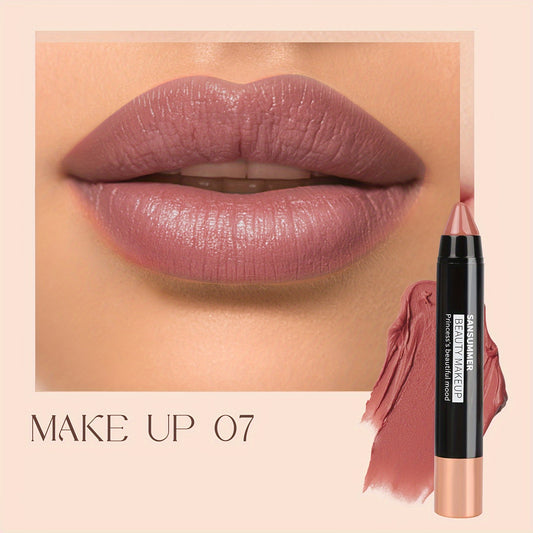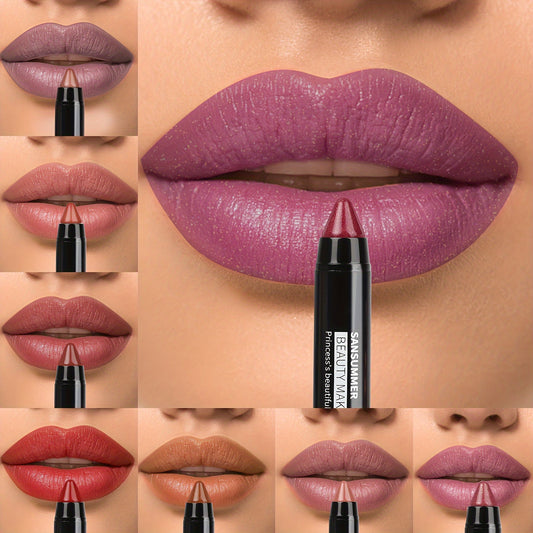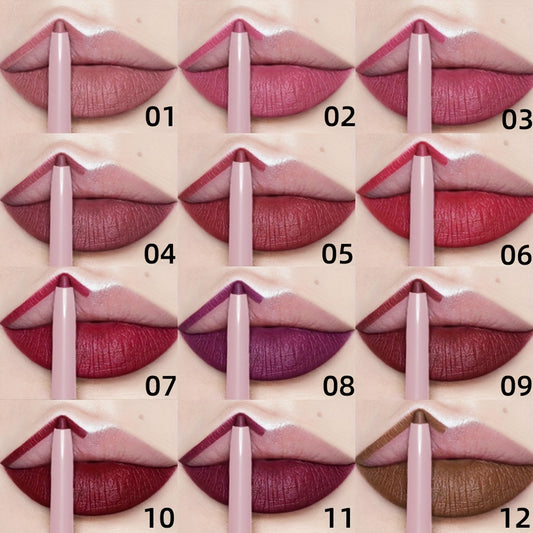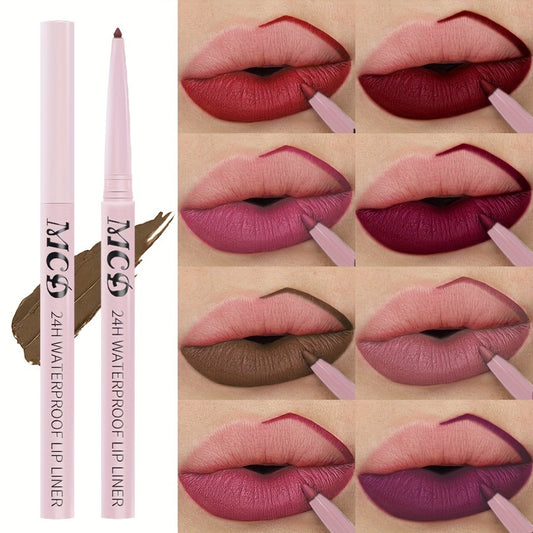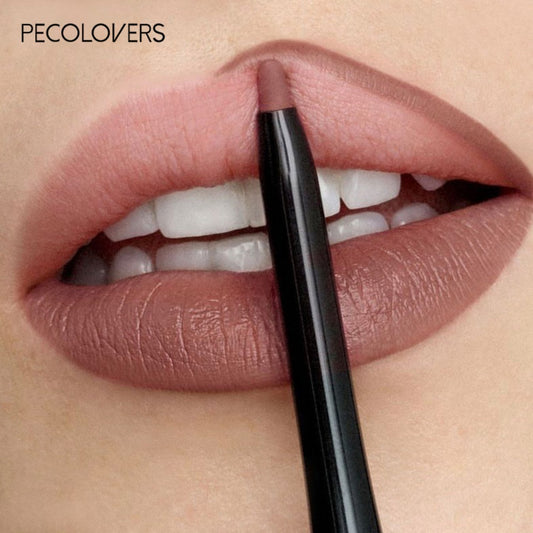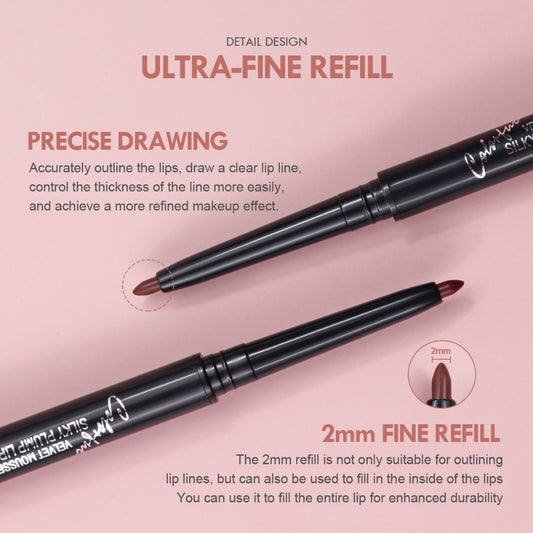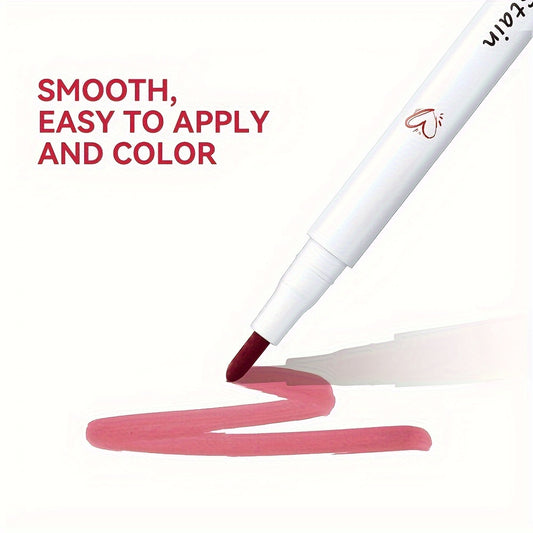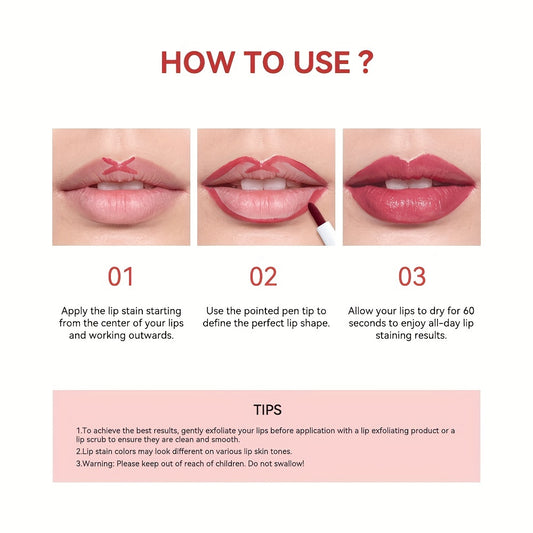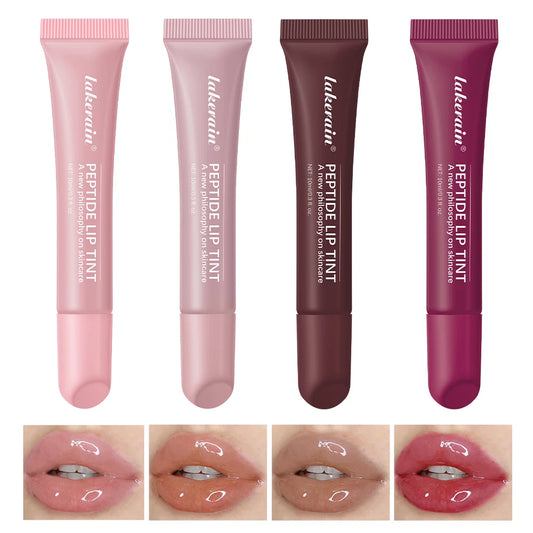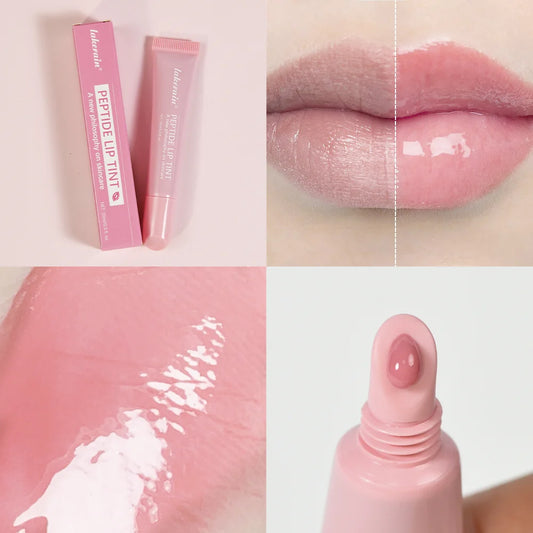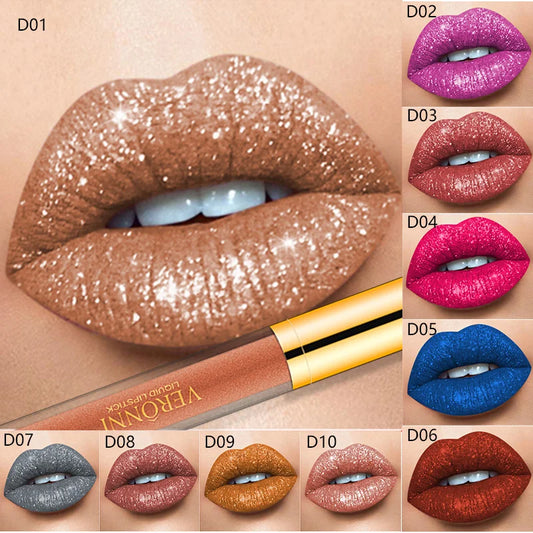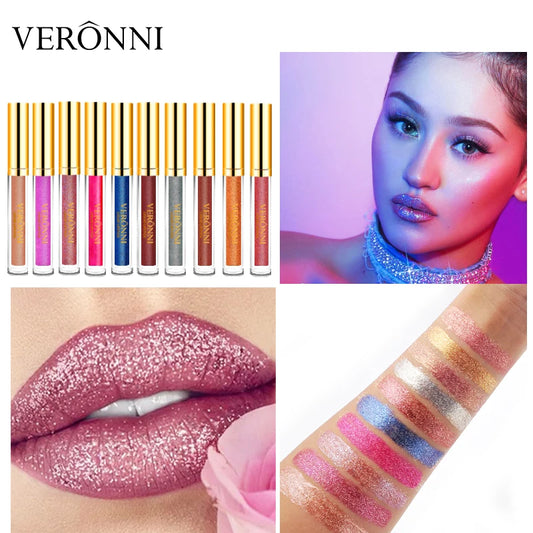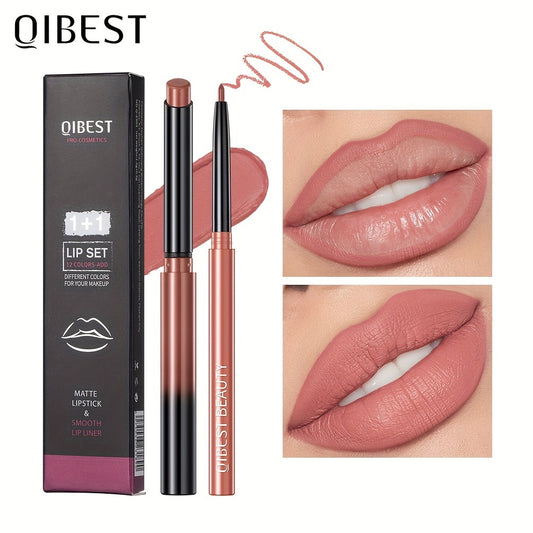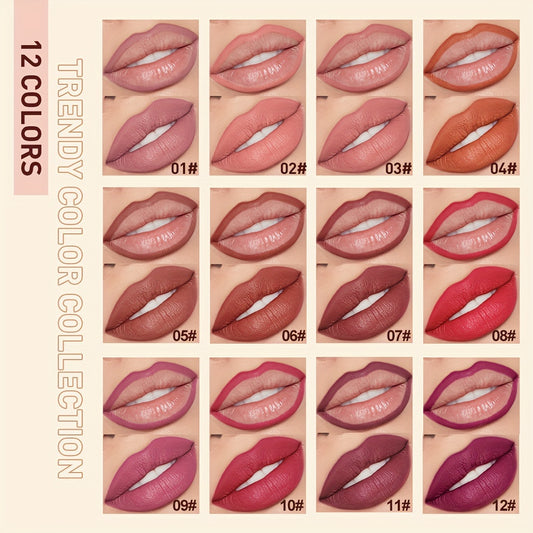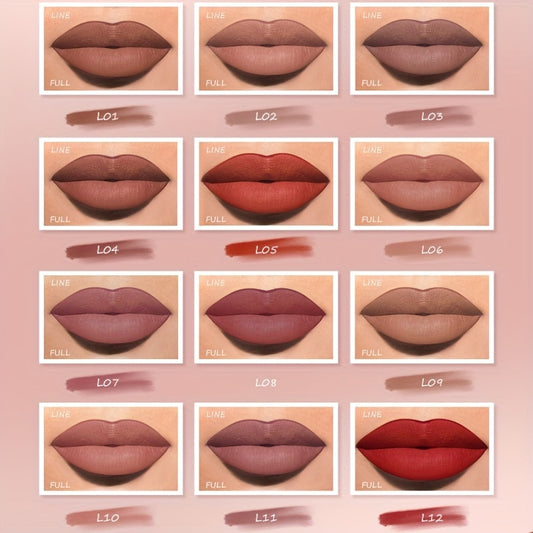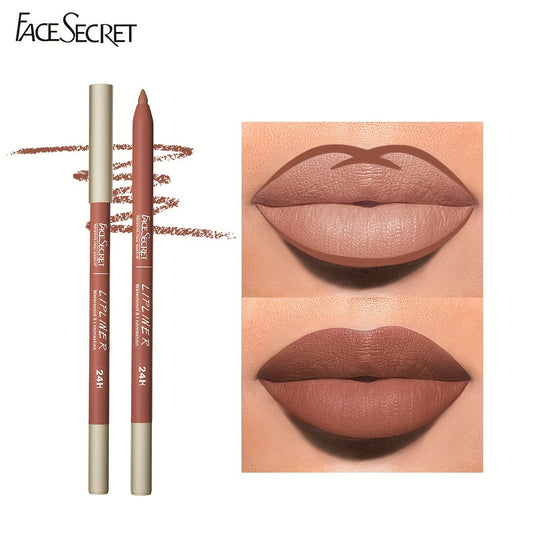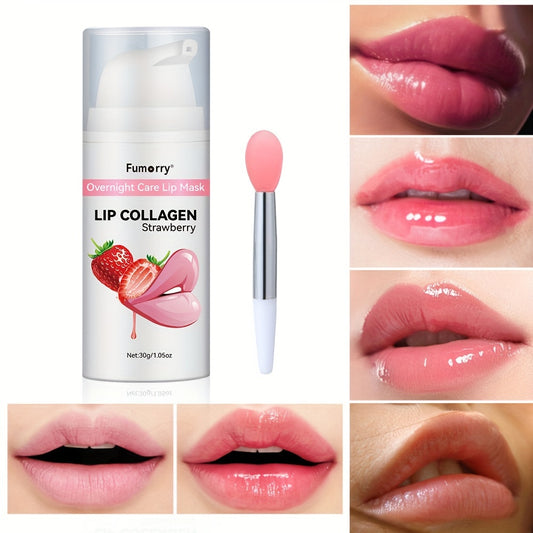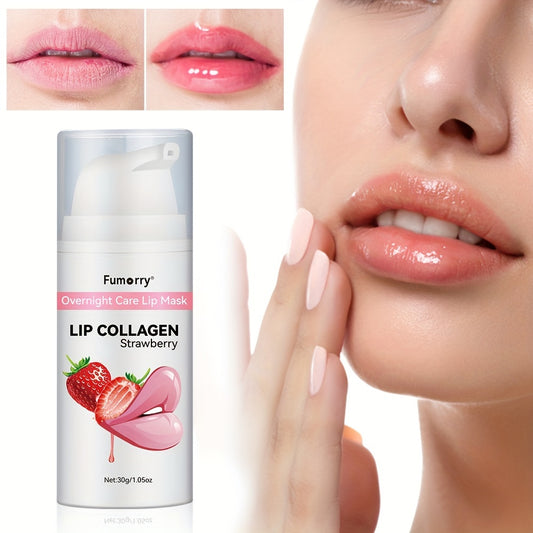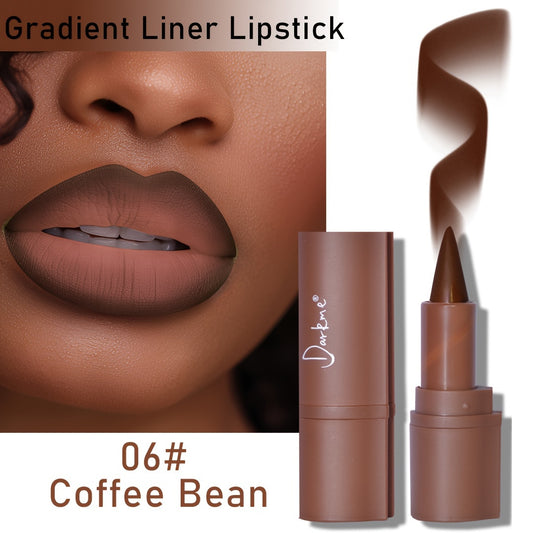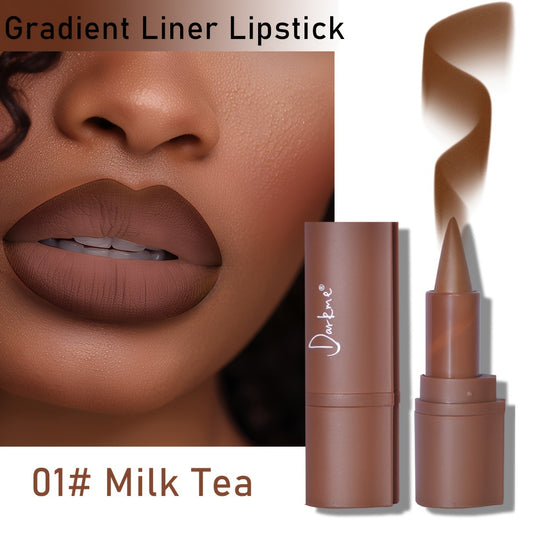Understanding Why Are My Lips So Dry: Causes and Effective Remedies
Share
If you've ever wondered, "why are my lips so dry?" you're not alone. Many people experience dry, chapped lips at some point, and understanding the reasons behind it can help you find effective solutions. From environmental factors to dietary choices, there are several culprits that can leave your lips feeling parched. Let's explore the causes and remedies to keep your lips healthy and hydrated.
Key Takeaways
- Dry lips can be caused by environmental factors like weather and humidity.
- Dietary deficiencies, especially vitamins, can contribute to lip dryness.
- Habits like licking lips and mouth breathing can worsen dryness.
- Staying hydrated and using lip balm are effective home remedies.
- For persistent issues, medical treatments may be necessary.
Understanding The Causes Of Dry Lips
Dry, cracked lips aren’t just a little annoyance – they often tell a story about what’s been going on around us in our day-to-day life. Let’s break down some of the reasons and see how each habit and environmental factor adds up.
Environmental Factors
Weather plays a big role here. Whether you’re stepping out on a harsh winter morning or stepping into a sun-baked afternoon, the air can be really rough on your lips. Consider these points:
- Cold air and wind can sap moisture.
- Indoor heating tends to dry out the air, leaving lips parched.
- Hot weather and low humidity contribute by evaporating natural moisture quickly.
Here's a small table to show how different conditions might affect your lip moisture levels:
| Condition | Moisture Loss Level |
|---|---|
| Freezing temperatures | High |
| Dry indoor air | Moderate |
| Hot and sunny days | High |
Even if you’re careful, sometimes nature just doesn’t do favors. And if you’re checking out beauty items on a shopping site for extra lip care, remember that environmental exposure is something to watch closely.
Dietary Deficiencies
What you eat matters a lot in keeping your lips from drying out. When you’re low on vitamins or skip on enough water, your skin – including your lips – might take a hit. Here’s a short list to keep in mind:
- Low vitamin intake, especially B vitamins, can lead to chapped lips.
- Not drinking enough water makes it easier for lips to dry and crack.
- Poor dietary choices can lower overall moisture retention in your skin.
These issues are a common culprit behind those pesky cracks and splits you might notice. A little change in diet sometimes makes all the difference.
Licking Habits
It might feel natural to keep licking your lips when they’re dry, but this habit only makes the problem worse. Saliva evaporates quickly and strips away natural oils, leaving your lips even drier.
Consider these points on why licking isn’t helping:
- Constant licking leads to a cycle where lips lose moisture repeatedly.
- The enzymes in saliva that are meant for digestion end up being harsh on the sensitive skin of your lips.
- Over time, this habit can cause longer-lasting damage that simple moisturizers can’t fix.
A change in your routine, like gently applying a lip balm instead of reaching for your tongue, can gradually restore comfort and moisture to your lips.
Remember, sometimes a minor habit change combined with a better diet and care against harsh weather is all it takes to get your lips back in shape.
The Impact Of Weather On Lip Health
Cold Weather Effects
Cold weather can be a real enemy of soft, moisturized lips. Low temperatures combined with biting winds strip essential moisture from your skin. When the air is cold, your lips often lose hydration faster than other parts of your body. Here’s a quick look at what happens in harsh winter weather:
- Cracking due to rapid moisture loss
- Tight, almost painful dryness
- Increased sensitivity and a higher chance of chapping
A simple table to illustrate some basic measurements might help:
| Temperature (°F) | Typical Lip Effect |
|---|---|
| 30-40 | Noticeable dryness and slight cracking |
| 20-30 | Increased chapping and discomfort |
| Below 20 | Severe cracking and potential bleeding |
Keep in mind that extreme weather takes a serious toll on lip moisture.
Hot Weather Effects
Warm conditions can be just as tough on your lips, even if it seems counterintuitive. The heat often pairs with dryness, leaving your lips feeling tight and flaky. Additionally, exposure to the sun’s rays can cause dehydration and even sunburn on the delicate lip skin.
Here are a few points on how hot weather affects your lips:
- Loss of moisture through evaporation
- Increased risk of sunburn and subsequent peeling
- Feelings of discomfort and rough texture
Using a good Vitamin E balm can provide a protective shield against these effects, keeping your lips softer for longer.
Indoor Dryness
Indoor environments, particularly during the winter months, tend to be drier thanks to the heating systems. Constant exposure to air conditioning or forced warm air can lead to dehydration, even if it’s not immediately obvious.
- Heated air reduces ambient moisture levels
- Continuous exposure can make recovery slower
- Many people don’t realize that indoor conditions can be as damaging as outdoor weather
When you spend long hours in heated rooms, it’s not just your skin that suffers – your lips feel it too. Using humidifiers and staying on top of hydration can really make a difference.
Overall, different weather conditions require a mix of protective strategies. Whether it's a table of temperature effects or a simple reminder to moisturize, knowing what to expect helps you manage lip dryness better.
Nutritional Factors Contributing To Dry Lips
Vitamin Deficiencies
It’s not unusual for lips to dry out when you aren’t getting enough vitamins. A lack of nutrients—especially B vitamins like riboflavin—can make your lips less resilient to the daily wear. This deficiency can show up as chapping or peeling, and sometimes a simple blood test can help you figure out exactly what’s missing in your diet.
Things to keep in mind:
- A small drop in vitamin intake might lead to noticeable dryness.
- Deficiencies can also affect your overall skin health.
- Adjusting your diet, even slightly, might improve the condition of your lips.
Hydration Levels
Staying hydrated is one of the simplest ways to support your lip health. Drinking enough water is key to keep your lips from turning dry. When your body is low on fluids, it has a harder time keeping skin and lips moisturized. A good practice is to set a reminder to sip water throughout the day. Also, using products like fruity lip balms can provide extra moisture on top of your regular hydration routine.
Here’s a quick snapshot of recommended water intake:
| Age Group | Recommended Daily Water (oz) |
|---|---|
| Adults | 64+ |
| Older Adults | 72+ |
| Kids | 32+ |
Dietary Choices
What you eat plays a big role in how your body looks and feels—even on the outside. A balanced diet with the right fats and plenty of fruits and vegetables gives your body the fuel it needs to keep everything, including your lips, from drying out. Here are a few ideas to adjust your eating habits:
- Pick foods rich in omega-3 fatty acids, like salmon or flaxseeds.
- Embrace a variety of fruits and vegetables for their vitamins and antioxidants.
- Cut back on sugary snacks that might spike inflammation and worsen dryness.
A well-balanced diet isn’t just about managing calories; it also helps maintain the moisture and overall look of your lips.
By adjusting your vitamin intake, ensuring proper hydration, and refining your dietary choices, you can give your lips a better chance at staying smooth and soft.
Common Habits That Worsen Dry Lips
When it comes to dry lips, some of our daily habits can make things even worse. Whether it’s the way we breathe or the products we use, these little actions add up over time.
Mouth Breathing
Breathing through your mouth—especially while sleeping—can strip moisture away from your lips. Instead of the gentle humidification that nasal breathing provides, mouth breathing forces dry air over your lips, leaving them more vulnerable. Here are some points to consider:
- It often happens without us noticing.
- Dry air from mouth exhalation adds up over time.
- Changing your sleeping position or using a humidifier may help.
Take some time to be aware of your breathing habits, and if issues persist, consider a consultation with a health professional. Also, don’t forget to check out some natural lip balms that complement your routine.
Frequent Licking
Frequent licking might feel like a quick fix, but it actually makes lips even drier. When saliva evaporates, it leaves behind even less moisture than before, and over time you create a cycle that is hard to break.
- Saliva contains enzymes that can further irritate and dry-out your lips.
- Licking may provide temporary relief but worsens the problem long-term.
- Forming other habits, like applying lip balm, can offer better relief.
A simple switch to using a quality lip care product, such as natural lip balms, may prevent the drying cycle from continuing.
Using Harsh Products
Harsh products, such as lip balms with irritating chemicals or strong fragrances, can strip your lips of their natural oils. Often, these products promise quick fixes but end up causing more harm than good.
Here’s a quick table that summarizes the issue:
| Habit | Effect on Lips | What You Can Do |
|---|---|---|
| Mouth Breathing | Accelerated moisture loss | Breathe through your nose, use humidifiers |
| Frequent Licking | Enzymatic irritation | Use a lip hydration product natural lip balms |
| Using Harsh Products | Removal of natural oils | Opt for gentle, hypoallergenic products |
If you’re trying to figure out a better routine, consider avoiding aggressive formulations and aim for products that care for your skin naturally.
Sometimes, taking a step back to re-evaluate your daily habits—like how often you apply new products or which ones you trust—can make a noticeable difference in lip health.
In summary, by steering clear of these habits and choosing smarter alternatives, you can begin to see improvements. Experiment with gentle changes and see which adjustments work best for you.
Effective Home Remedies For Dry Lips
Staying Hydrated
One of the simplest ways to help your lips recover is to keep your body well-hydrated. Water is a natural moisturizer and keeps your skin, including your lips, in better shape. Here are a few tips:
- Drink 6-8 glasses of water throughout the day.
- Avoid overly caffeinated or sugary beverages that can dehydrate you.
- Add fruits and vegetables with high water content into your meals.
Using Lip Balm
A reliable lip balm can make a noticeable difference, especially when it's free from harsh chemicals. I like to use a dual flavor balm because it not only hydrates but also gives a refreshing taste with a light touch of Vitamin E. Follow these steps for best results:
- Apply a thin layer of lip balm as soon as you feel your lips getting dry.
- Reapply after eating or drinking to maintain moisture.
- Choose products that are fragrance-free to avoid irritation.
Gently Exfoliating
Removing dead skin from your lips can help them absorb moisture more efficiently. It’s important to do this with care to avoid further irritation. You might try one of these methods:
- Use a soft toothbrush or a gentle lip scrub to lightly massage your lips in circular motions.
- Limit exfoliation to once or twice a week to prevent over-exfoliating.
- Follow up with a moisturizing lip balm immediately after exfoliating.
Be gentle during exfoliation to avoid causing even more dryness or irritation.
Every step you take in caring for your lips helps them recover better. Mixing simple habits like staying hydrated, using a good quality lip balm, and gentle exfoliation can make a real difference in relieving dry lips over time.
Medical Treatments For Persistent Dry Lips

When home remedies and lifestyle adjustments don't do the trick, the next step might be to look into medical treatments. While it can feel a bit overwhelming, it's all about finding what works for your body. Below are some treatments that are often prescribed by doctors.
Topical Corticosteroids
Topical corticosteroids are creams or ointments applied directly to the affected area. They work by reducing swelling, redness, and discomfort. Sometimes, a doctor-prescribed cream can work wonders when other treatments fail. Here are a few points to note:
- They help calm moderate inflammation.
- Usually applied in thin layers to avoid overuse.
- They help your skin heal faster when used correctly.
These treatments are generally used for short periods, and your doctor will guide the proper application routine.
Antibiotics For Infections
If dry lips are complicated by a bacterial or fungal infection, your doctor might suggest antibiotics. These medications target the germs causing the irritation and are prescribed in forms like topical ointments or pills. To put it simply:
- They control infection levels in and around the affected lips.
- They help reduce further skin damage and pain.
- They are often used in combination with other treatments to speed up recovery.
In some cases, doctors monitor the treatment closely to ensure that the antibiotics are effective without causing unwanted side effects.
Nutritional Supplements
Sometimes, persistent dry lips are linked to vitamin or mineral shortages. Nutritional supplements help correct these deficiencies, which can make your skin, including your lips, healthier. If your doctor believes your dry lips are linked to diet, they might recommend supplements like vitamin B complex or iron. Consider these steps:
- Address and correct any dietary gaps.
- Combine supplements with proper skincare practices for best results.
- Follow your doctor's advice on dosage and duration.
Remember, pairing nutritional supplements with a nourishing lip mask can provide extra hydration and protection, making your healing process even smoother.
It's important to work closely with a healthcare provider to tailor these treatments to your specific needs. Experimenting on your own might sometimes prolong the healing process, so getting professional advice can save you time and discomfort.
Each of these treatment options offers a different approach for combating persistent dry lips. Combining them might be necessary for those with more severe symptoms, but always follow professional guidance to avoid complications.
Recognizing Symptoms Of Dry Lips
Dry lips can be more than a small annoyance. They might signal that your body isn’t holding onto moisture like it should, especially when you see different signs on your lips. Spotting these symptoms early helps you adjust your habits and maybe even try a product like a hydrating lip balm to balance your moisture levels.
Cracking And Peeling
Your lips might start to break up, showing small cracks or flaking pieces. This often means that the skin has lost its natural oils. If you notice a rough texture and broken skin, it’s time to look into ways of soothing your lips.
- Look for fine or jagged cracks along the border of your lips
- Notice if peeling happens more in one area than the other
- Keep an eye on the texture: continuous peeling can cause irritation
Redness And Swelling
Sometimes, the discomfort is more obvious with a reddened or swollen appearance. These signs can occur when the skin is stressed from dryness or environmental factors. Redness and swelling often point to an ongoing irritation that your usual lip care might not fix.
- Observe if the color of your lips seems more inflamed
- Check for puffiness or a feeling of tightness
- Notice any warmth, which can accompany swelling
Pain And Sensitivity
Dry lips are not just unsightly; they can hurt too. Discomfort, tenderness, or a burning feeling on your lips usually means the skin barrier is broken. The pain might not be extreme, but it can affect eating and talking, adding to daily frustration.
- Feel for a slight burning sensation when you eat or speak
- Sensitivity might also show up when exposed to wind or sunlight
- Try to see if simple moisturizing helps reduce the pain
When you encounter these symptoms consistently, it’s a reminder to review your lip care routine. Sometimes, a change in ingredients or habits could be all it takes to give your lips a fresh start.
Dry lips can be uncomfortable and annoying. You might notice that your lips feel rough, look cracked, or even peel. These signs mean your lips need some extra care. If you see these symptoms, it’s time to take action! Visit our website to find the best lip balm that can help keep your lips soft and healthy. Don’t wait—your lips deserve the best!
Wrapping It Up: Keeping Your Lips Healthy
So, there you have it. Dry lips can be a real pain, but knowing what causes them is half the battle. Whether it's the weather, your diet, or just bad habits like licking your lips, there's usually a way to fix it. Staying hydrated, using a good lip balm, and avoiding irritants can make a big difference. If your lips are still giving you trouble, it might be time to chat with a doctor. Remember, taking care of your lips is just as important as any other part of your health. Here's to soft, happy lips!
Frequently Asked Questions
What causes dry lips?
Dry lips can be caused by many things, including weather changes, not drinking enough water, and licking your lips too often.
How can I keep my lips moisturized?
To keep your lips moisturized, drink plenty of water and apply lip balm regularly.
Is it bad to lick my lips?
Yes, licking your lips can make them drier because saliva evaporates quickly, leaving your lips without moisture.
What should I do if my lips are cracked?
If your lips are cracked, use a good lip balm and avoid harsh products. If it doesn’t improve, see a doctor.
Can diet affect my lip health?
Yes, not getting enough vitamins and minerals in your diet can lead to dry lips. Eating a balanced diet helps.
When should I see a doctor for dry lips?
You should see a doctor if your dry lips are very painful, bleeding, or don’t get better with home care.

